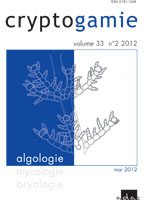Bacteria associated to benthic dinoflagellate Ostreopsis cf. ovata cultures were removed to assess their effects on algal growth and toxins' production. Bacteria were removed using an antibiotic cocktail (streptomycin, ciprofloxacin, gentamicin and penicillin G). The actual axenic status of antibiotic treated cultures and bacterial growth in control cultures were assessed by epifluorescence microscopy using SYBR gold dye. The removal of bacteria unaffected algal growth, except conferring a higher cell number at mid stationary phase. Toxin profile and quantification of each toxin (PLTX, OVTX-a, -b, -c, -d, -e) were performed by HR LC-MS on both cell pellet and growth medium extracts. No changes in toxins' profile nor in cell and extra-cellular toxins' concentrations were found between bacteria-free and control cultures at the early stationary phase. Whereas, in late stationary phase axenic cultures showed significant lower cell toxins' concentrations and higher extra-cellular toxins' values, though not significantly (total cell toxins' concentrations: 39.3 and 24.9 pg cell—1; total extra-cellular toxins' concentrations: 23.8 and 28.3 μgL—1 for control and bacteria-free cultures, respectively).
How to translate text using browser tools
1 May 2012
Cell Growth and Toxins' Content of Ostreopsis cf. Ovata in Presence and Absence of Associated Bacteria
Silvana Vanucci,
Franca Guerrini,
Laura Pezzolesi,
Carmela Dell'Aversano,
Patrizia Ciminiello,
Rossella Pistocchi
ACCESS THE FULL ARTICLE
It is not available for individual sale.
This article is only available to subscribers.
It is not available for individual sale.
It is not available for individual sale.

Cryptogamie, Algologie
Vol. 33 • No. 2
May 2012
Vol. 33 • No. 2
May 2012
axenic culture
bacteria
Ostreopsis cf
ovata
palytoxin




